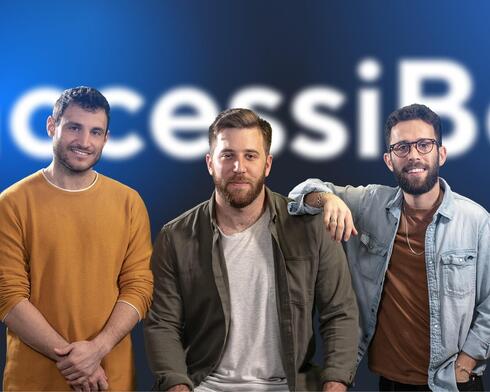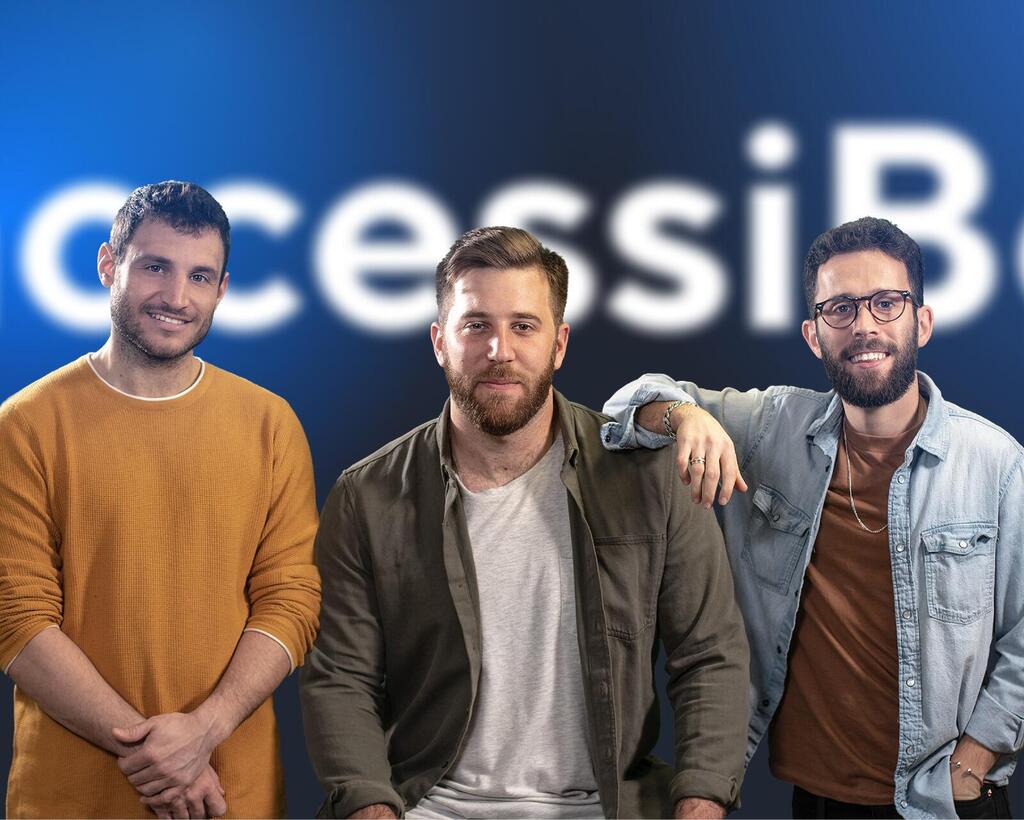
AccessiBe to pay $1 million in FTC settlement over allegations of false accessibility claims
FTC alleges Israeli company's plugin failed to meet WCAG standards and included misleading marketing practices. "The company completely denies the FTC's allegations and believes that they are largely based on deficient testing and rely on outdated information," the company said.
Israeli website accessibility company accessiBe will pay a $1 million fine in the U.S., as part of a settlement with the Federal Trade Commission (FTC). The case centered on claims that the company misrepresented the ability of its AI-powered web accessibility tool to make any website compliant with the Web Content Accessibility Guidelines (WCAG) for people with disabilities. The settlement still requires final approval following a period of public comment.
AccessiBe was founded in 2018 by Dekel Skoop, Gal Vizel, and Shir Ekerling. It develops AI-based technologies for making websites accessible to people with disabilities. One of the company's main products is a website plugin called accessWidget, which accessiBe claims makes websites accessible to users with disabilities in accordance with the WCAG standard—an international benchmark for website accessibility that various countries have adopted as mandatory. For example, in the U.S., government and airline websites must comply with WCAG standards, and beginning this June, all websites and digital services in the European Union will also be required to adhere to these standards. In Israel, the obligation to make websites accessible is based on a slightly modified version of WCAG.
The ability to easily and cost-effectively make websites accessible in line with international standards not only saves website operators significant expenses but also helps them avoid legal violations, which can involve steep fines and legal fees. AccessiBe’s claim that its plugin enables compliance with WCAG requirements is therefore a critical selling point for businesses that rely on it to ensure accessibility.
In October 2023, the FTC initiated an administrative action against accessWidget, alleging that its claims were false and that the plugin did not ensure WCAG compliance. "Despite Respondents’ repeated claims that accessWidget makes websites compliant with WCAG, in a number of instances websites running the accessWidget software contain or have contained barriers that would make it difficult or impossible for persons with disabilities to use the web content for its intended purpose," read the FTC's complaint. "These barriers include: missing or inaccurate alt text for key images; a missing focus indicator (a colored border that shows which interactive element on a web page is currently selected or being viewed); keyboard traps (when a user cannot use the keyboard to move the focus, causing the user to be “trapped” on an element such as a drop-down menu, or an input box in a form); incorrect headings; and problems with menus, buttons, and tables, among other essential navigation components. All of these barriers correspond to level A 21 or AA Success Criteria and would render a website non-compliant with WCAG."
Additionally, the FTC investigation found that accessiBe misrepresented third-party articles or reviews as independent opinions when, in fact, the authors worked for the company and were paid to review, draft, edit, or approve the publications. "In some instances, Respondents, or persons working on behalf of Respondents, asked the reviewer to omit or remove any designation that such reviews were “sponsored” or paid for by accessiBe," the complaint states.
Over the weekend, the FTC approved a settlement with the Israeli company to conclude the proceedings. As part of the settlement, accessiBe agreed to pay a fine of $1 million. In addition, the company will be prohibited from claiming that its automated and AI products make websites fully compliant with WCAG standards or ensure ongoing compliance unless it can provide evidence to support these claims. AccessiBe will also be prohibited from making misleading claims about the features, performance, benefits, and quality of its products and services. Furthermore, the company will be prohibited "from misrepresenting any material facts about its products and services to consumers regarding their features, performance, benefits and other qualities, and from misrepresenting that: 1) statements made in third-party reviews, blog posts, or articles about its automated products are independent opinions by impartial users; 2) an endorser is an independent or ordinary user of the automated product; or 3) an endorser is an independent organization providing objective information."
The settlement does not include an admission of wrongdoing by accessiBe.
"Companies looking for help making their websites WCAG compliant must be able to trust that products do what they are advertised to do," said Samuel Levine, Director of the FTC’s Bureau of Consumer Protection. "Overstating a product’s AI or other capabilities without adequate evidence is deceptive, and the FTC will act to stop it."
In response, accessiBe stated: "Following an FTC investigation, which focused on the past, 2019-2022, accessiBe has reached a settlement that does not include any admission of liability. The company completely denies the FTC's allegations and believes that they are largely based on deficient testing and rely on outdated information. The FTC's complaint in no way attacks the capabilities of accessiBe’s technological solutions to ensure that its clients' websites comply with accessibility regulations in the U.S."
The company further noted: "The settlement allows accessiBe to focus on the core mission for which the company was founded. For many businesses that want to make their websites accessible to all, accessiBe is still one of the most affordable options available, enabling a more accessible Internet. We continue to strive to create a more inclusive world, both online and offline, and continue to take advantage of developments in the world of technology to offer more advanced services. In line with our commitment to transparency, we continue to take steps to ensure even greater transparency in our marketing materials."














